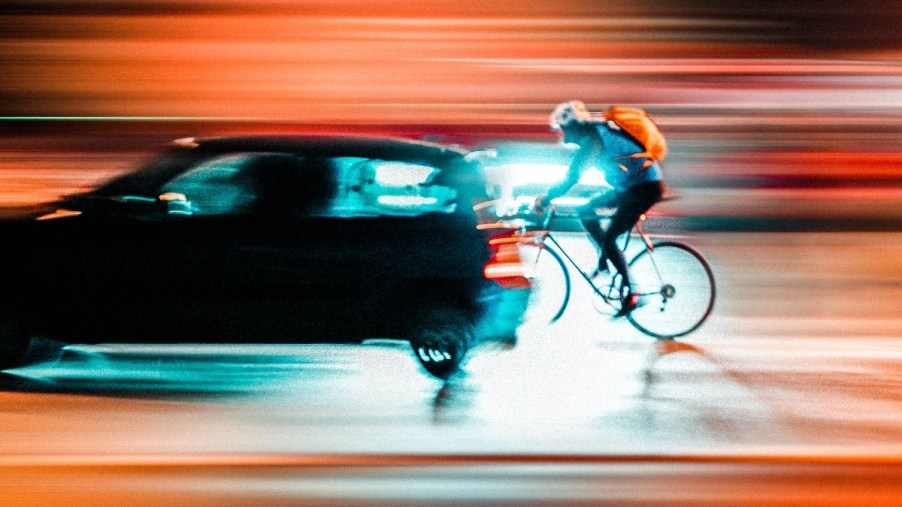
Bikes Don’t Slow Down Car Traffic and Cause Congestion, Says Transportation Experts
The interactions between cyclists and car drivers can sometimes get contentious, This is especially the case in urban areas where there are more bicycles. On the one hand, cyclists have to worry about a car hitting them. On the other hand, drivers sometimes get frustrated when a slower-moving bike ahead of them prevents them from driving faster. However, according to transportation experts, as a whole, bikes don’t slow down car traffic and cause congestion.
Do bikes slow down car traffic and cause congestion?

As reported by HowStuffWorks, the Transportation Research Record: Journal of the Transportation Research Board published a study in 2020 on the “Impact of Bicycle Traffic on Passenger Car Travel Speeds.” For the study, researchers at Portland State University “found that on low-speed, low-volume city roads — ones without bicycle lanes — motor vehicle speeds varied by 1 mph or less when bicyclists were present.”
The researchers completed the study in Portland, which has some of the worst traffic congestion in the country. For the investigation, “they observed six different roadways at various times, including rush hour.” The researchers also “looked for vehicles following other motor vehicles, and then those that followed cyclists.”
After conducting a detailed analysis, the researchers “found that there was only a 1 mph speed differential when cyclists” were on roads.” This 1 mph difference is very small — and not enough for bikes to substantially slow down car traffic overall.
Reasons why bikes don’t slow down car traffic and cause congestion

After seeing the results of the study, some readers might have doubts about its validity. However, there are multiple reasons why bikes don’t slow down car traffic and cause congestion.
Drivers might have individual experiences when bikes temporarily slow them down. However, it’s a small snippet of time compared to all the instances in which bikes and cars share the road. Also, when more people ride bikes instead of cars, traffic congestion might actually be lower.
Also, as noted in the study, “on downhill slopes, there was even less chance that car drivers would have cause for concern.” This is because “cyclists harnessed gravity to increase their speed.” Furthermore, “e-bikes have a power-assist feature that boosts their speed.” These e-bikes have a lower likelihood of cars overtaking them, regardless of the incline.
The study demonstrates the viability of shared roads with both bikes and cars
In a press release, the Portland State University researchers discussed how their study demonstrates the viability of shared roads with both bikes and cars. Jaclyn Schaefer, one of the PSU researchers, stated, “The hope is that our study dissuades policymakers from tossing out shared roadways as a viable option because of the perception that bicyclists will impede the mobility and speed of drivers.” She continued, “While the preference is to separate modes through separated, protected bike lanes, that’s not always possible in every urban setting.”
The PSU researchers are expanding upon their initial study. They are taking a look at a wider range of conditions to see if bikes affect other aspects of “vehicular dynamics.” This includes a “greater variety of roadways, traffic volumes, and other variables.”


